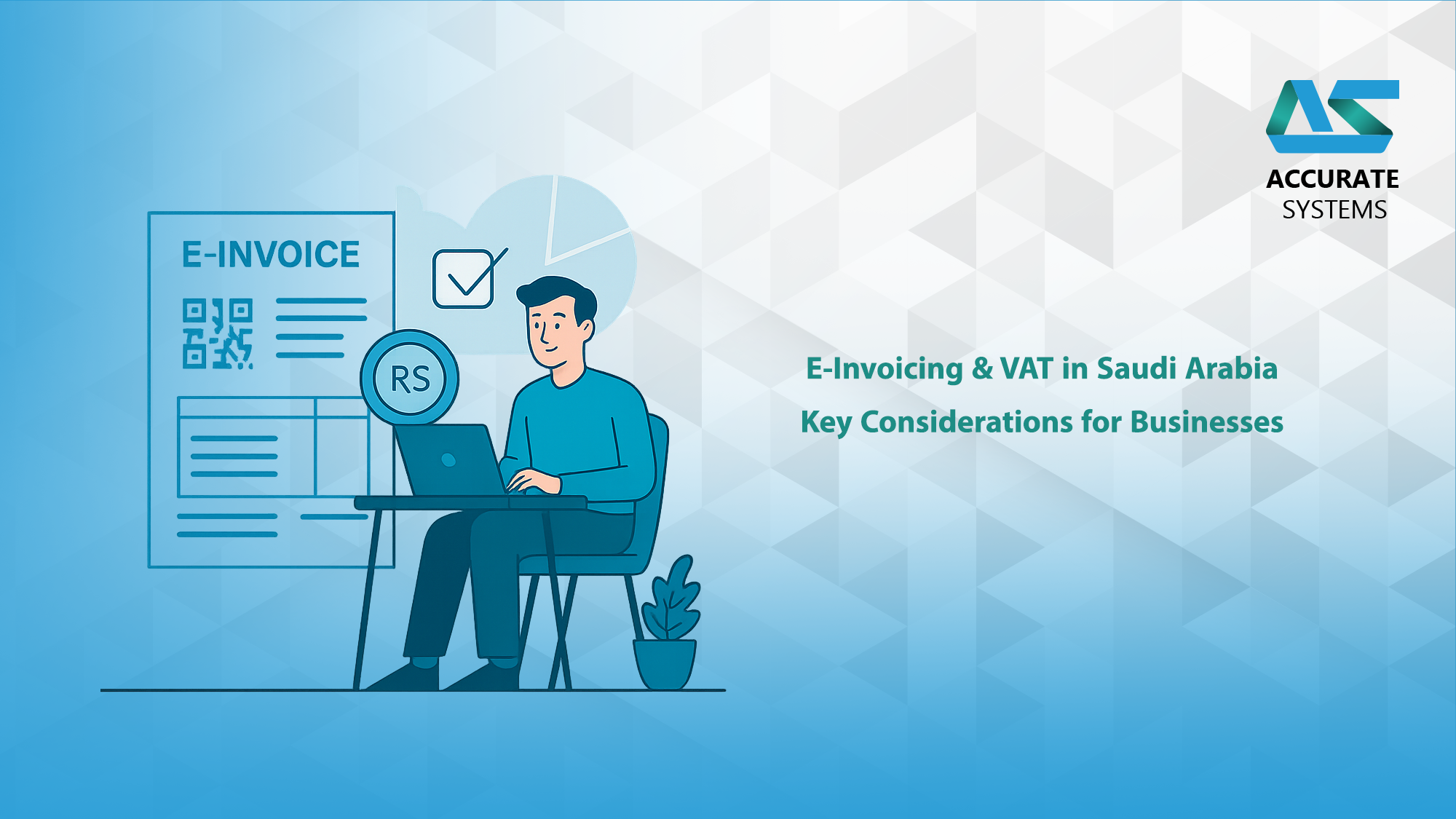What is VAT in Saudi Arabia?
Value Added Tax (VAT) was introduced in Saudi Arabia in January 2018 as part of the Vision 2030 economic transformation plan. Originally implemented at 5%, the VAT rate increased to 15% in July 2020. VAT applies to most goods and services across the supply chain and is regulated by the Zakat, Tax and Customs Authority (ZATCA).
All businesses generating taxable supplies above SAR 375,000 annually must register for VAT. Compliance includes issuing VAT invoices, collecting VAT from customers, maintaining accurate records, and submitting regular VAT returns to ZATCA.
How VAT Affects Businesses in Saudi Arabia
VAT compliance directly impacts financial planning, pricing, and operations. Businesses need to:
- Adjust pricing strategies to include VAT in product or service prices.
- Manage cash flow, as VAT is payable even if clients haven’t paid invoices.
- Ensure accurate VAT reporting to claim input tax credits and avoid penalties.
- Track taxable turnover to remain compliant with registration requirements.
- Maintain clean and structured records to streamline audits and inspections.
Failing to comply can lead to substantial fines, legal issues, and audit disruptions.
E-Invoicing: The Backbone of VAT Compliance
E-invoicing is a core tool that supports accurate VAT reporting in Saudi Arabia. ZATCA introduced e-invoicing in two phases:
- Phase 1 (Generation Phase): Businesses must issue structured e-invoices in XML or PDF/A-3 format.
- Phase 2 (Integration Phase): Requires real-time integration of invoicing systems with ZATCA’s Fatoora platform.
Benefits of E-Invoicing:
- Prevents tax evasion by validating VAT data in real time
- Automates invoice generation and transmission
- Reduces manual entry and errors in VAT calculations
- Supports faster VAT return preparation and filing
Best Practices for VAT Reporting in Saudi Arabia
To maintain full VAT compliance, businesses should follow these best practices:
- Automate invoicing and reporting using ERP tools
- Ensure all invoices are ZATCA-compliant (QR code, UUID, seller/buyer info)
- Perform monthly VAT reconciliations between purchases and sales
- Verify vendor VAT registration to claim input tax deductions
- Maintain digital records for six years in secure storage
- Train accounting staff on VAT rules, ZATCA guidelines, and system updates
How ERPNext Helps You Stay VAT Compliant
ERPNext is a powerful cloud-based ERP solution that simplifies VAT and e-invoicing compliance in Saudi Arabia.
ERPNext Features for ZATCA Compliance:
- Real-time integration with ZATCA’s Fatoora system
- Automated VAT calculation based on item type and location
- ZATCA-ready e-invoice formats (XML/PDF-A3)
- VAT reports and ledgers for monthly or quarterly filing
- Secure digital archiving and role-based access control
With ERPNext, businesses eliminate manual errors, automate compliance, and reduce the risk of penalties.
Conclusion: Make VAT Compliance Easy with E-Invoicing & ERPNext
Saudi Arabia’s VAT and e-invoicing requirements are essential for regulatory compliance and financial transparency. E-invoicing supports accurate, real-time VAT reporting, and ERPNext simplifies the entire process through automation.
By implementing ERPNext and following best practices, businesses can avoid penalties, improve accuracy, and ensure seamless compliance with ZATCA regulations in an increasingly digital economy.
#VAT #EInvoicing #SaudiArabia #ZATCA #ERPNext #Fatoora #TaxCompliance #DigitalTransformation #Vision2030


